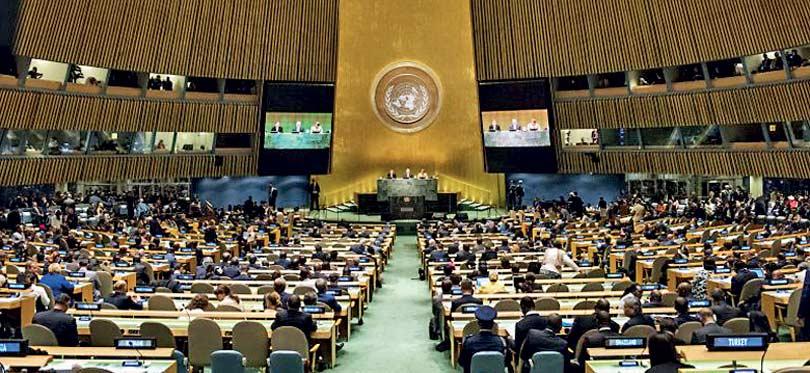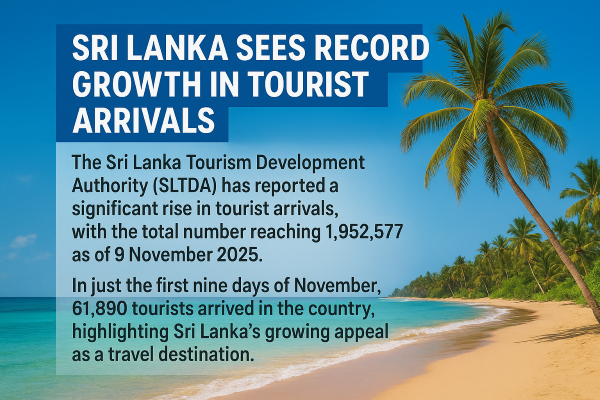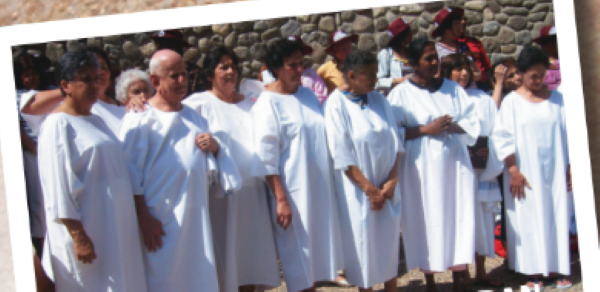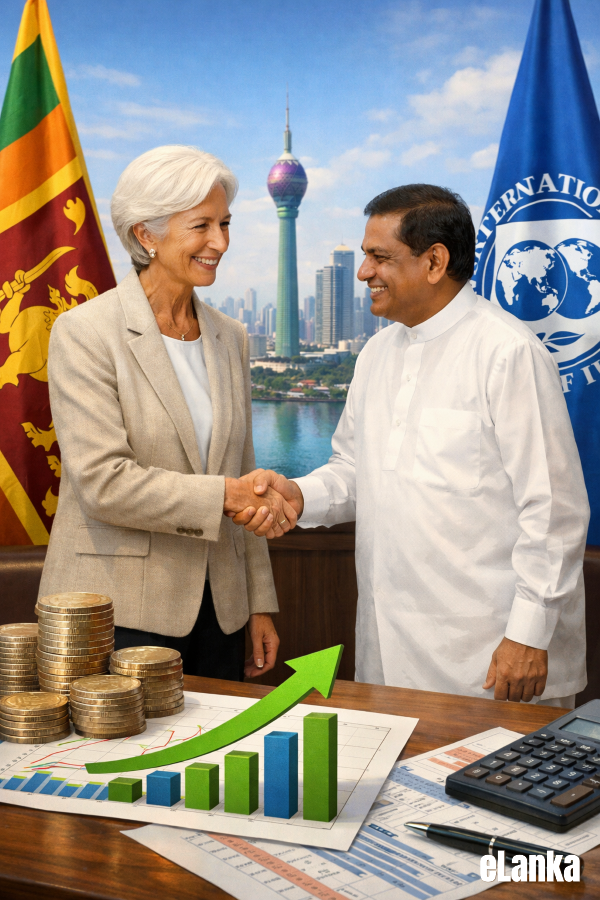The UN: A Waste of Money? Sri Lanka:Time for Professional Speechwriters – By K K S Perera
The UN is facing harsh crticism for its inability to resolve current conflicts including Gaza
Source : dailymirror.lk
 The UN General Assembly meeting showed a badly broken world order, with world leaders giving speeches that revealed deep splits on how to run the world, solve conflicts, and protect human rights. The assembly became a fight between those wanting countries to work together versus those wanting each nation to go it alone.
The UN General Assembly meeting showed a badly broken world order, with world leaders giving speeches that revealed deep splits on how to run the world, solve conflicts, and protect human rights. The assembly became a fight between those wanting countries to work together versus those wanting each nation to go it alone.
Opened under President Annalena Baerbock’s leadership. The high-level debate began September 23, featuring over 150 world leaders in sessions from 9am-2:45pm and 3pm-9pm daily. On Thursday, the majority of representatives vacated the chamber as Israeli Prime Minister Netanyahu approached the podium.Brazil traditionally speaks first, followed by the US as host.
This created tension as Presidents Lula and Trump, who have clashed over Trump’s ally Jair Bolsonaro’s recent coup conviction, spoke consecutively.Speaking order follows representation level, preferences, and geographic balance. The Vatican, Palestine, and EU also participate. Debates continue through September 27, resume September 29 (no Sunday sessions), with all scheduled speakers completing their voluntary 15-minute addresses before conclusion.
Trump’s Paradoxical Performance
US President Donald Trump’s 55-minute address delivered the assembly’s most significant developments. Initially offering a withering critique of UN effectiveness, Trump questioned the organisation’s very existence, dismissing it as a body that “printed a lot of papers and then didn’t follow up on them” and was “unable to bring about peace or to resolve wars.” His infamous escalator malfunction became a metaphor for UN incompetence.
However, Trump’s speech contained a stunning reversal on Ukraine policy. After months of advocating territorial concessions to Russia, he declared that Ukraine could “win back all of its territory from Russia militarily”—a complete abandonment of his previous stance. This dramatic shift represented validation for Ukrainian President Volodymyr Zelenskyy’s consistent rejection of territorial compromise.
Trump’s broader worldview centered on “rally nationalism,” positioning migration and renewable energy as primary threats to the “free world.” European leaders positioned themselves as defenders of multilateral institutions while responding cautiously to Trump’s Ukraine pivot. French President Emmanuel Macron delivered a direct counterpoint to Trump’s nationalism, denouncing Israel’s “permanent war” with neighbours.
Poland’s newly elected President Karol Nawrocki issued perhaps the assembly’s most urgent warning, declaring “the existing international order is crumbling.” He framed Russia’s invasion of Ukraine as an existential crisis for international institutions.
Ukrainian President Zelensky expressed surprise at Trump’s reversal, telling media he believed it meant continued US support as Ukraine seeks territorial recovery.
The assembly’s most passionate speeches came from Global South leaders who delivered scathing critiques of international inaction on Gaza while challenging Western-dominated governance structures. Colombian President Gustavo Petro emerged as the most radical voice, calling for a “powerful army of countries that do not accept genocide” to establish peacekeeping forces in Gaza.
His speech represented fundamental rejection of traditional diplomacy: “Diplomacy has been tried in Gaza. It could not resolve the situation.” Petro called for binding General Assembly action to circumvent Security Council vetoes, suggesting willingness to bypass existing UN structures. He accused Trump of being an “accomplice to genocide” while calling the UN a “mute witness” to Gaza’s humanitarian crisis—extending criticism beyond American policy to indict the entire international system.
South African President Cyril Ramaphosa reinforced these themes by referencing a UN commission’s genocide determination against Israel in Gaza. As the country that initiated International Court of Justice proceedings against Israel, South Africa positioned itself as leading efforts to utilise international legal mechanisms against systematic violations.
Regional leaders emphasised immediate humanitarian concerns while asserting sovereignty. Lebanese President Joseph Aoun called for Israel’s complete withdrawal from Lebanese territory and release of hostages, referencing the November 2024 ceasefire agreement. Syria’s al-Sharaa urged ending all sanctions, while Qatar’s Emir condemned Israel as a “rogue state.” Iran dismissed what it called the “ludicrous and delusional scheme of greater Israel,” reflecting broader regional opposition to Israeli policies.
Elevating Sri Lanka’s Voice: The Case for World-Class Speechwriting
President Anura Kumara Dissanayake’s UN address became a case study in diplomatic missteps. Critics condemned the speech as “disconnected from global reality,” focusing on domestic drug problems while the world expected visionary leadership. Most damaging was plagiarising Rwandan President Kagame’s quote—”FIGHTING CORRUPTION IS DANGEROUS, NOT FIGHTING CORRUPTION IS EVEN MORE DANGEROUS”—without attribution, undermining credibility.
President AKD must abandon cheap, inexperienced writers and invest in professional speechwriters. The cost of top-tier talent pales beside diplomatic damage from plagiarism scandals and geographical errors. The speech’s references to Nehru and Truman lost impact due to the plagiarism scandal.
UN Secretary-General’s Warning
UN Secretary-General António Guterres warned that Gaza’s “scale of death and destruction” exceeded “any other conflict in my years as secretary-general,” while expressing concern that the organisation’s capacity was “being cut from us.” Human Rights Watch criticised Trump’s “obvious lack of respect for international organisations,” warning that reduced US funding risked “abandoning victims of abuses and war crimes while making the world a safe space for dictators and human rights violators.”
The passionate Gaza calls from Global South leaders, contrasted with measured European responses and American support for Israel, demonstrated how regional conflicts become proxies for larger debates about international law, Western hegemony, and civilian protection responsibilities.
Conclusion: Fractures and Future Challenges
The assembly exposed a world where traditional diplomatic solutions appear increasingly inadequate for urgent crises. Leaders either called for aggressive international intervention or retreated into nationalist isolation, leaving little middle ground for cooperative multilateralism.
This dysfunction reflects deeper institutional paralysis. The UN faces mounting criticism as a “bloody waste of money”—consuming over $3.4 billion annually while producing toothless resolutions without enforcement power. Permanent Security Council members routinely block meaningful action through vetoes, while authoritarian regimes ignore non-binding General Assembly declarations.
The organisation’s structural flaws have transformed humanity’s hope for collective security into expensive diplomatic theatre where rhetoric substitutes for action. The fractures exposed at UNGA 2025 raise fundamental questions about governing an interconnected world when consensus itself has become elusive, suggesting the need for entirely new mechanisms that deliver results rather than empty promises.





















